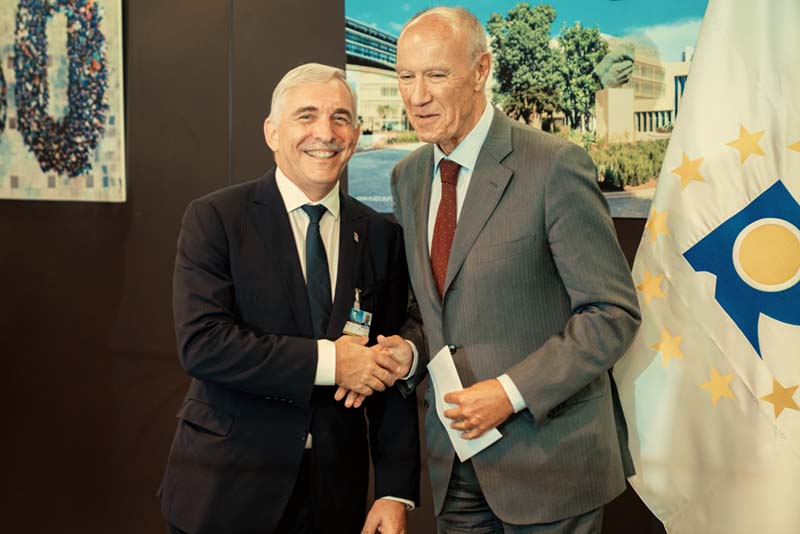On Wednesday 2/10, Michel Barnier debriefed the Members of EP Brexit Steering group on UK government’s latest proposals. Following an exchange of views, the Members agreed on the following statement:
“The BSG does not find these last minute proposals of the UK government of 2 October, in their current form, represent a basis for an agreement to which the European Parliament could give consent. The proposals do not address the real issues that need to be resolved, namely the all – island economy, the full respect of the Good Friday Agreement and the integrity of the Single Market.
While we remain open to workable, legally operable and serious solutions, the UK’s proposals fall short and represent a significant movement away from joint commitments and objectives.
In particular, concern was expressed about three aspects of the proposals.
First, the UK proposals on customs and on regulatory aspects explicitly provide for infrastructure, controls and checks but are unclear as to exactly where and how these would be carried out. Any form of controls and checks in and around the border would signify the end of frictionless trade and as such would harm the all-island economy as well as represent a serious risk to the peace process, and could imply a serious risk for consumers and businesses. The proposals tabled by the UK Government thus breach a range of fundamental principles and red lines passed in the resolutions of this house. At the same time, such controls would not be sufficient to guarantee the protection of EU consumers and businesses in all circumstances, thereby potentially leaving the EU with a significant hole in its Single Market.
Second, the UK proposals would operationally only be worked out in detail by the EU and the UK, or in the UK unilaterally, during the fourteen-month transition period. This does not provide the necessary certainty or fulfil the agreed principles in the Withdrawal Agreement. This would mean the European Parliament would have to give consent to the Protocol without knowing its full implications, nor having any guarantee as to its legal operation. This is unacceptable.
Third, the right of consent being offered to the Northern Irish Assembly effectively makes an agreement contingent, uncertain, provisional and unilateral decision, instead of the safety net provided for by the backstop. Furthermore, the Northern Irish Assembly has not sat for nearly three years and it is questionable whether it would be able to reconvene and take on the responsibility for an international treaty of this nature.
In summary, the BSG has grave concerns about the UK proposal, as tabled. Safeguarding peace and stability on the island of Ireland, protection of citizens and EU’s legal order has to be the main focus of any deal. The UK proposals do not match even remotely what was agreed as a sufficient compromise in the backstop.
The European Parliament remains open to explore all proposals, but these need to be credible, legally operable, and in practise have the same effect as the compromises found in the Withdrawal Agreement. “
Note to editors
The European Parliament continues to support an “orderly Brexit” based on the already negotiated Withdrawal Agreement, MEPs reaffirmed in the resolution adopted with a large majority on 18 September. Any withdrawal agreement and future association or international agreement with the UK will need to be approved by the European Parliament.


